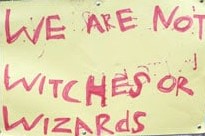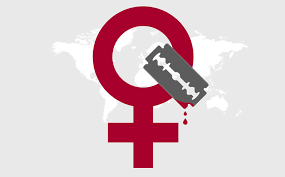Banjul, 9 December 2021: IHRDA, Child Rights and Rehabilitation Network in Nigeria and Centre for Human Rights – University of Pretoria, South Africa, 8 December 2021, sued Nigeria before the African Committee of Experts on the Rights and Welfare of the Child (ACERWC), alleging Nigeria’s failure to protect children accused of witchcraft from persecution, discrimination and inhuman treatment.
Witchcraft is widespread across Nigeria, with children being among the most victimized. Children could be accused of witchcraft just for being orphan, for having a physical disability or physical illness, for being intellectually gifted, for being born in abnormal conditions (prematurely or in breech positions), for being twin or for having albinism. Other vulnerable children include those with red eyes, with bad behaviour, those who stare at people, those who avoid looking straight into the eyes of people, and children suffering from autism. In some instances, children are considered as witches once they are so declared by a religious/spiritual authority. Such perception of children is widely reported in States such as Abia, Akwa Ibom, Bauchi, Cross River, Delta, Edo, Kaduna, Nassarawa and Taraba. Though such perception of children is widespread, accurate statistics are hard to obtain as those practices are often conducted in secret.
Children considered to be witches are usually subjected to inhuman treatment, such as severe beatings and torture, perpetrated at times by family members; some are subjected to burning by fire or acid, starvation, being buried alive and forceful ingestion of poison or dangerous chemicals. They are stigmatised in their families and communities, discriminated against, abandoned, tortured and in some instances killed. These are usually vulnerable children living in unsecure and deplorable social conditions. They generally do not go to school; instead, they are subjected to risky and unhealthy jobs, such as working as house-helps, working on the farms and in the streets. Consequently, most of these children lose the opportunity to live with their families or acquire basic education.
The plaintiffs allege the failure of Nigeria to protect children from witchcraft accusations and the resultant violations, which constitute a violation of the children’s right to equality and non-discrimination, their right to life, survival and development, their right to education, the rights of handicapped children, and their right to freedom from torture and inhumane treatment. These are rights enshrined in the Constitution of Nigeria and in the African Charter on the Rights and Welfare of the Child to which Nigeria is party.
The plaintiffs request the ACERWC to hold Nigeria responsible for the said allegations, and to urge Nigeria to ensure effective prosecution for witchcraft accusations. They also request the ACERWC to demand that Nigeria should put in place a series of structural measures to end this phenomenon, such as adopting legal and policy framework criminalising and prohibiting discrimination and persecution on the basis of witchcraft accusations, ensuring education for children who are victims of witchcraft accusations, carrying out sensitization on the ills of the phenomenon, and providing interim support measures such as foster homes for child victims in order to ensure their care and rehabilitation.







